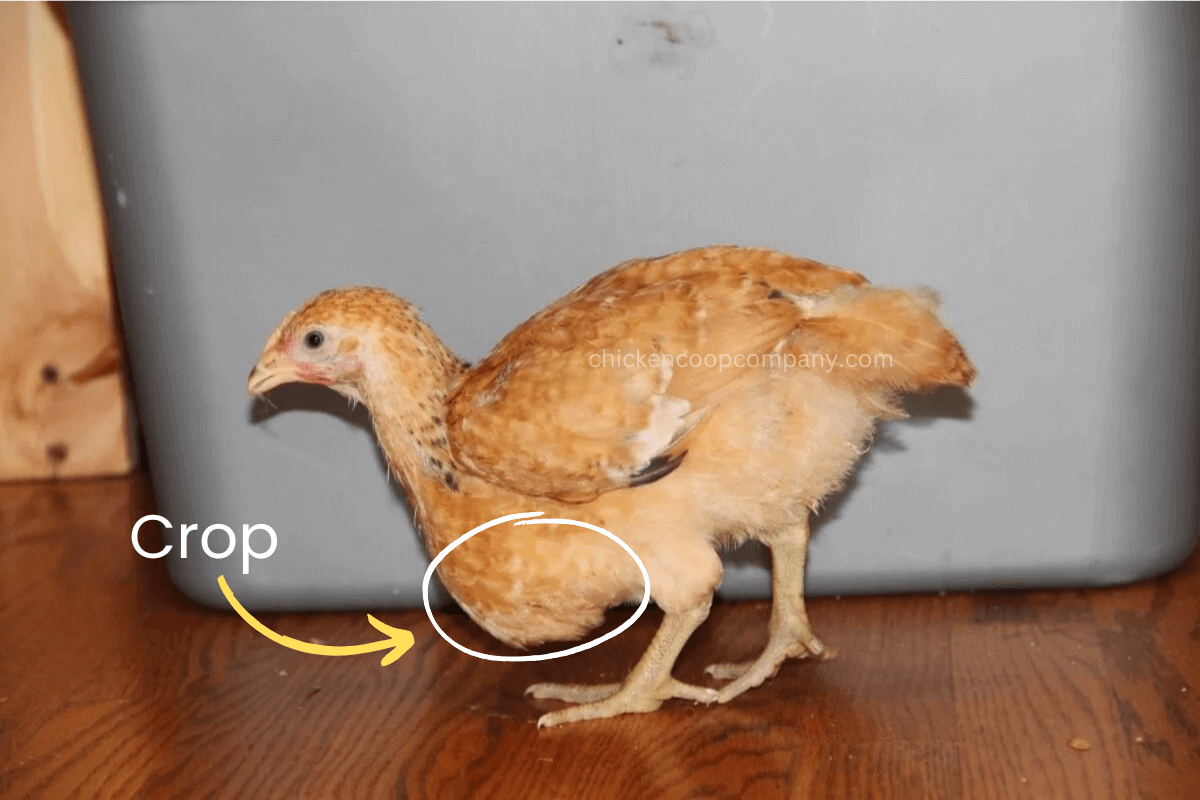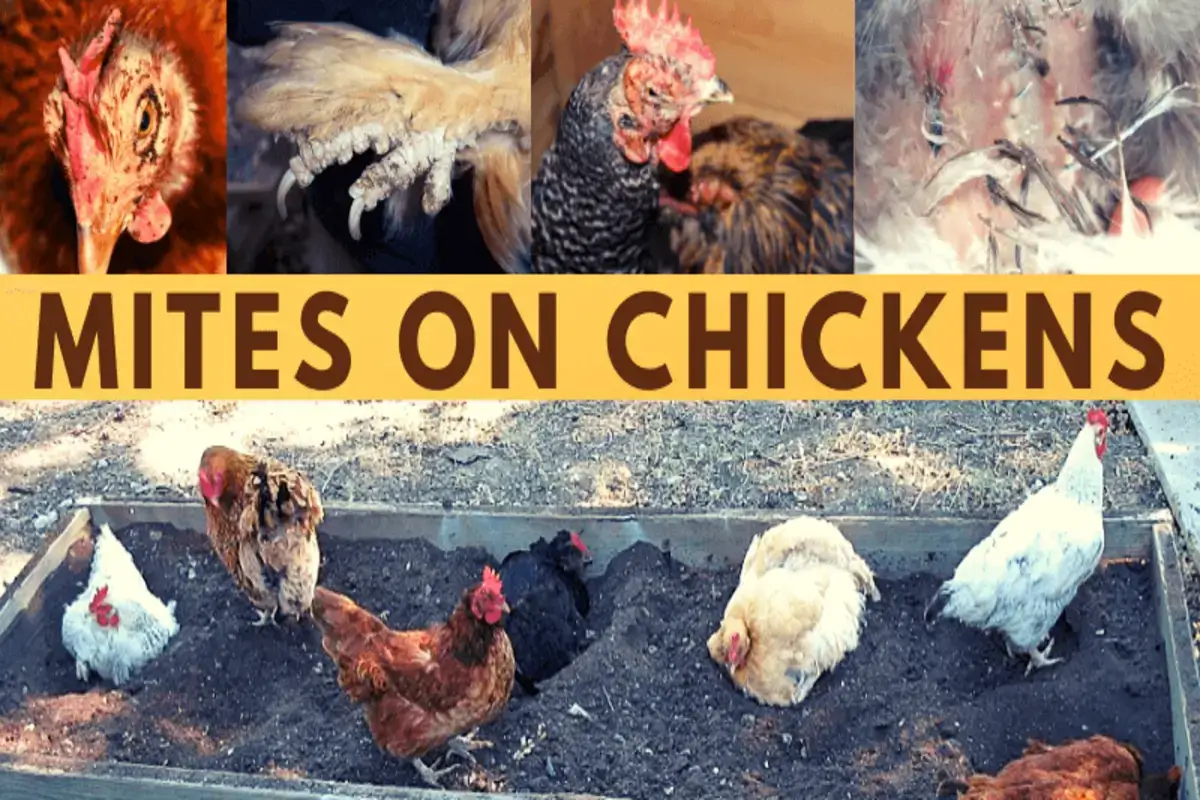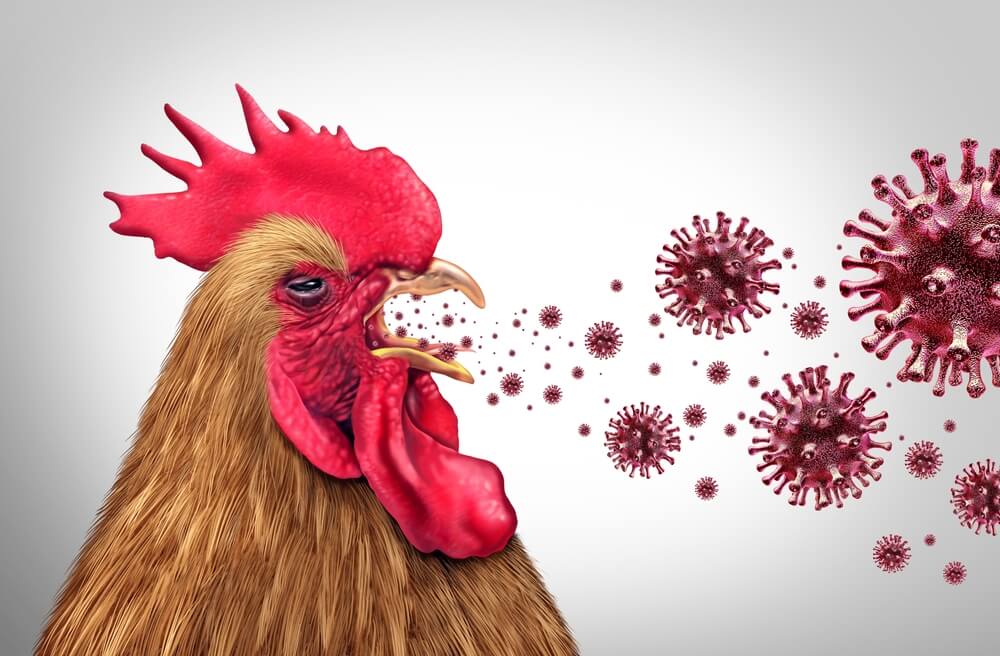Table of Contents
Sour crop is a nasty condition that can kill your chickens if not treated quickly. As a backyard chicken owner we'll cover everything you need to know about sour crop, including causes, symptoms, diagnosis, treatment and prevention so you can keep your flock healthy.
What is a Chicken’s Crop?
The crop is a part of a chicken’s digestive system located at the base of the neck, it’s a food storage pouch before the food goes into the stomach. This first digestion site is key to your chicken’s overall health.
What is Sour Crop?
Candidiasis or delayed crop emptying is a condition where the crop doesn’t empty normally and the food ferments instead of digests. This causes the crop to become inflamed, swollen and filled with a foul smelling liquid, indicating a digestive disruption.
pH, Bacteria and Fermentation in the Chicken’s Crop
A chicken’s crop health relies on a delicate balance of pH levels and beneficial bacteria that break down food particles. Disruption to this balance can cause fermentation and Candidiasis. Diet, hydration and overall health play a big role in this balance.
What Causes Sour Crop in Chickens
Sour crop can be caused by:
Bad Diet: Feeding chickens a diet high in sugar or low in fiber can disrupt digestion. We've got a great guide on what to feed and what not to feed chickens.
Dehydration: Not enough water can slow down digestion and cause thrush or candidiasis. Make sure your flock has easy access to water. We prefer nipple waterers that have some storage capacity. A good water heater in the winter is also a must.
Foreign Bodies: Eating long grass or plastic can block the crop. Normal grass is not bad so don't freak out if you see your chickens eating the green stuff.
Fungal Infections: Yeast overgrowth in the crop can ferment the contents and cause thrush or candidiasis.
Chicken Crop Problems
Environmental and management factors also contribute to Candidiasis. Stress, poor hygiene and overcrowding can predispose chickens to this condition. You might ask, well how do I improve my chickens hygiene?
The short answer is keeping their coop clean, making sure they have fresh water and good dust bath location and three of the top things for chicken hygiene.
How to Diagnose Sour Crop
Diagnosing Candidiasis involves looking for symptoms such as a distended crop, foul smell from the beak and the chicken’s decreased appetite and activity. A vet consultation may be necessary for proper diagnosis and to rule out other diseases.
How to Treat Sour Crop in Chickens
Immediate Care
Isolation: Remove the affected chicken from the flock to reduce stress and bullying.
Crop Massage: Gently massage the crop to move its contents.
Hydration: Electrolyte solutions are a great way to rehydrate and support recovery.
Advanced Treatment
Antifungal Medication: To treat yeast infections in the crop.
Surgical Intervention: In severe cases, surgical intervention may be needed to remove impacted material from the crop.
Natural Remedies and Home Care for Sour Crop
For those looking to support their chickens naturally alongside veterinary advice, there are a few home remedies that may help with sour crop recovery. While these methods should never replace professional treatment for severe cases, they can be used as a supportive measure for mild or early symptoms.
Apple Cider Vinegar (ACV)
Adding a small amount of unfiltered apple cider vinegar to your chicken’s drinking water (1 teaspoon per liter) can help maintain a healthy pH balance in the crop. ACV’s natural acidity may also slow the growth of yeast and bacteria that contribute to fermentation.
Garlic Water
Garlic is known for its natural antimicrobial properties. Crushed garlic cloves can be steeped in water and offered to the chicken as a short-term remedy to combat harmful bacteria or fungi in the crop.
Coconut Oil
A teaspoon of coconut oil can be gently melted and administered to the chicken. Coconut oil has antifungal properties and may help soothe the crop lining while addressing yeast overgrowth. It also acts as a lubricant to help move material through the digestive system.
Herbal Teas
Teas made from chamomile or oregano can have calming and antifungal effects. Let the tea cool to room temperature and offer it as a drinking option for your flock, especially for any chickens showing early signs of sour crop.
Activated Charcoal
For cases involving potential toxin ingestion, activated charcoal can bind harmful substances in the digestive tract. Mix a small amount with water and offer it carefully with a syringe.
These additional measures should always be used with caution and under proper guidance. Regular monitoring of your chickens during treatment is crucial to ensure they’re responding well and not developing complications.
Preventing Sour Crop with Nutritional Management
Proper nutrition is crucial to prevent sour crop. A balanced diet supports digestive health and boosts the immune system, reducing the risk of infections that can lead to thrush or candidiasis. Consider using products like Vital Nutrients supplements to ensure your chickens receive essential vitamins and minerals.
Dietary Tips:
High Fiber Foods: Feed high fiber foods. Oats, barley and leafy greens help regulate the digestive system and prevent food from building up in the crop.
Probiotics: Adding probiotics to the diet will help maintain a balance of bacteria in the crop. Probiotic supplements or natural sources like fermented vegetables can be used.
Enough Grit: Chickens need grit to grind their food in the gizzard, digestion. Make sure your chickens have access to the right size of grit, especially if they are confined and don’t have access to natural grit sources.
Controlled Feeding: Over feeding can cause the crop to extend too far and not empty properly. Implement controlled feeding times to prevent over eating and give the chickens time to digest their food.
Problematic Foods to Avoid:
Sugary Foods: Sugary foods can ferment in the crop and cause Candidiasis. Avoid or limit sugary fruits and treats.
Spoiled Feed: Always make sure the feed is fresh and not mouldy. Spoiled feed can contain bad bacteria and fungi that can cause digestive problems.
By managing your chickens’ diet and making sure they get the nutrients they need you can reduce the risk of Candidiasis and other digestive issues. Check the quality of the feed and observe your chickens eating habits regularly to keep them healthy.
Prevention
Prevention is key to keeping your chickens healthy:
Dietary Management: Balanced diet with fiber and minimal sugar.
Hydration: Clean fresh water always available.
Environmental Hygiene: Regular cleaning of living areas and feeding stations to prevent bacterial and fungal growth.
Stress Reduction: A calm and stable environment to reduce stress in the flock.
Getting Rid of Sour Crop
Combining prevention and treatment is the key to managing Candidiasis. Regular health checks, quick response to symptoms and optimal living conditions can reduce thrush or candidiasis incidence. I know its easy to be overwhelmed as a backyard chicken owner. I try and think about learning as being fun and mastering chicken raising is so rewarding and worth all the education. To your adventure and sucess!
FAQs
How do you fix a sour crop?
Prepare a solution of copper sulfate* by mixing 1/2 pound + 1/2 cup of vinegar into 1/2 gallon of water. To each gallon of of her drinking water add 1 tablespoon of this solution. This should be done until her crop normalizes.
Can sour crop resolve on its own?
The answer is usually no. Sour crop typically results from an imbalance in the digestive system, often linked to an overgrowth of yeast or bacteria. Without proper treatment, sour crop is unlikely to clear up on its own and can lead to more serious health problems for your chicken.
Does sour crop spread?
It is not transmitted from one bird to another; however, multiple birds within the same flock can be affected if they are under same conditions or on long-term administration of antibiotics. Sour crop can be treated using antifungals like copper sulfate or nystatin.
Do laying hens need grit?
Without grit, chickens may struggle to digest larger food items, which can lead to blockages, illness or even death. It's a simple step that ensures your chickens stay healthy and can live a long, happy life.









